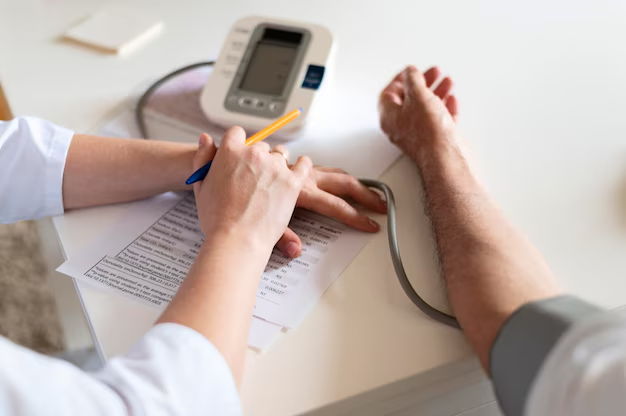Your Guide to Will Diabetes Cause High Blood Pressure
What You Get:
Free Guide
Free, helpful information about Diabetes FAQ and related Will Diabetes Cause High Blood Pressure topics.
Helpful Information
Get clear and easy-to-understand details about Will Diabetes Cause High Blood Pressure topics and resources.
Personalized Offers
Answer a few optional questions to receive offers or information related to Diabetes FAQ. The survey is optional and not required to access your free guide.
Can Diabetes Lead to High Blood Pressure? Here's What You Need to Know
Understanding the intricate relationship between diabetes and high blood pressure is crucial for maintaining good health. Diabetes, primarily characterized by high blood sugar levels, can indeed increase the risk of developing high blood pressure, a condition where the force of the blood against artery walls is consistently too high. But why does this happen, and what can you do about it?
The Connection Between Diabetes and High Blood Pressure
The link between diabetes and high blood pressure is complex, involving multiple factors such as insulin resistance, obesity, and inflammation. People with diabetes often experience changes in their blood vessels, heart, and kidneys, which can contribute to high blood pressure. Insulin resistance, a common occurrence in type 2 diabetes, is one key player. It can cause a chain reaction that impacts blood vessel function, leading to increased pressure.
Additionally, being overweight or obese — conditions commonly associated with type 2 diabetes — can exacerbate the issue. Extra weight can strain the heart and blood vessels, raising both sugar and pressure levels in the body. Furthermore, diabetes can damage the arteries, making them susceptible to atherosclerosis, which hardens and narrows them, thus compounding high blood pressure risks.
Managing and Monitoring Health
Maintaining a balance between diabetes management and blood pressure control is essential for preventing complications such as heart attacks or strokes. It's important to regularly monitor your blood sugar and blood pressure levels. Engage with healthcare providers to tailor a lifestyle plan that might include:
- Diet Modifications: Focus on a heart-healthy diet rich in fruits, vegetables, whole grains, and lean proteins. Reducing salt intake is particularly crucial for lowering blood pressure.
- Regular Exercise: Aim for at least 150 minutes of moderate aerobic activity weekly. Exercise helps improve insulin sensitivity and cardiovascular health.
- Stress Management: Techniques like yoga, meditation, and deep-breathing exercises can be beneficial in managing stress, which may otherwise increase blood pressure.
- Medication Compliance: If prescribed, ensure you take medications for both diabetes and hypertension as directed by your healthcare provider.
Financial Support and Educational Resources
Managing diabetes and high blood pressure can be costly, but various programs offer financial relief and educational opportunities to ease the burden. With rising medical expenses, it's vital to explore available resources to aid in your care and education:
- Medicaid/Medicare: Federal and state programs that can help cover medical costs for eligible individuals.
- Prescription Assistance Programs: Offer discounts or free medications for those battling chronic conditions and struggling financially.
- Diabetes Management Classes: Often available through community centers or hospitals, these classes can provide valuable information on managing diabetes effectively.
- Educational Grants and Scholarships: Some organizations offer grants specifically for those pursuing education in healthcare management, particularly focusing on chronic conditions like diabetes.
🔹 Key Programs for Financial and Educational Assistance
| 📚 Education | 💸 Financial Aid |
|---|---|
| Diabetes Self-Management Education | Medicaid/Medicare Coverage |
| Nutrition Workshops | Prescription Discount Cards |
| Accredited Online Health Courses | State-funded Health Insurance Programs |
| Scholarships for Healthcare Studies | Low-Income Subsidy Programs |
Taking control of your health goes beyond understanding the medical aspects. Empower yourself by exploring the financial and educational tools available, which can ease the journey toward improved well-being. Remember, effective management of diabetes and high blood pressure is not only about medication but also about a holistic approach to lifestyle and financial stability.
What You Get:
Free Diabetes FAQ Guide
Free, helpful information about Will Diabetes Cause High Blood Pressure and related resources.

Helpful Information
Get clear, easy-to-understand details about Will Diabetes Cause High Blood Pressure topics.

Optional Personalized Offers
Answer a few optional questions to see offers or information related to Diabetes FAQ. Participation is not required to get your free guide.


